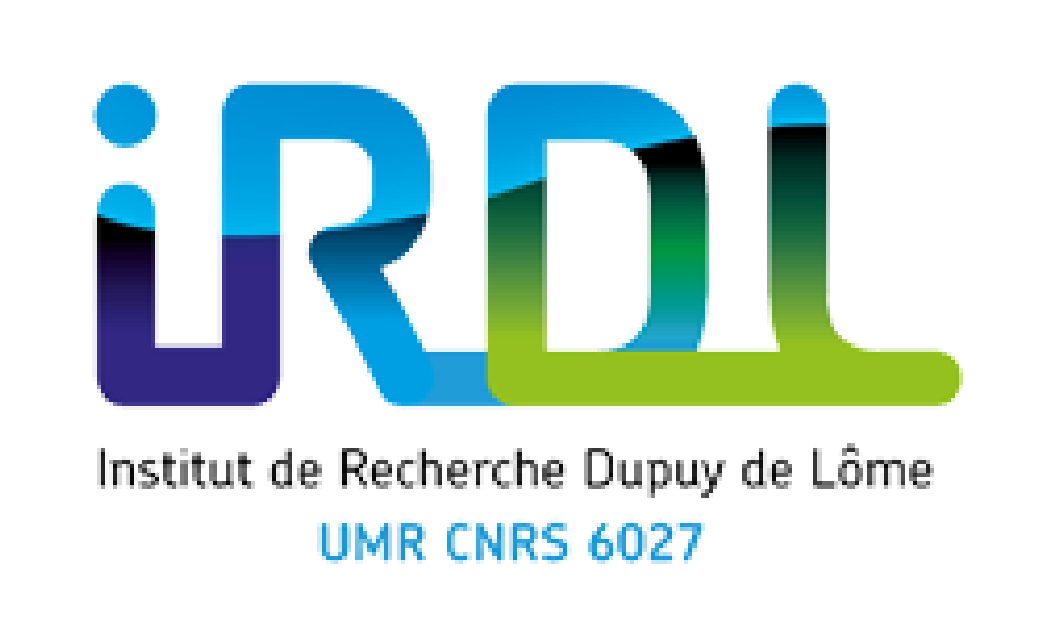Daniel Schmidt et Emmanuelle Reynaud, professeurs à l’université du Massachusetts (USA) seront dans nos locaux l’après-midi à Lorient du 4 juillet (lundi prochain). Le séminaire sera sur les thèmes : « Two aspects of reinforced polymers: Enhancing the sustainability of epoxies and their composites » et « Copolyester nanocomposites with uncompromised mechanical performance ».
Ils donneront un séminaire à 14 h en salle CR 204 ce lundi 4 juillet 2016.
Résumé : This talk will cover two efforts related to reinforced polymers. The first part of the talk will offer an update on our progress in the preparation of high performance, reworkable, bio-derived polymer networks and their glass fiber reinforced composites. The second part of the talk will cover the realization of mechanical reinforcement in transparent high-Tg copolyester nanocomposites.
Fiber reinforced epoxies offer high specific stiffness and strength coupled with excellent corrosion resistance but are effectively impossible to recycle. Likewise, in spite of significant efforts to develop more sustainable bio-based polymers, composite resins remain almost entirely petroleum-based. We show that epoxidized linseed oil is an excellent basis for the formation of high-performance structural thermosets, and present the rheology and cured properties of various bioepoxy / anhydride formulations. These materials display attractive combinations of modulus and heat distortion temperature. In tandem, we show that high performance anhydride cured epoxies may be prepared in the presence of catalysts that render them reworkable. Complementing screening via simple constant-load creep experiments, stress-relaxation measurements provide useful information concerning the time-scales over which reworkability may take place.
In the second part of the talk, we report the creation of two families of high performance copolyester / clay nanocomposites produced via twin screw extrusion compounding and injection molding on industrial scale equipment using commercially available ingredients. The results of these efforts highlight the fact that this field may yet hold surprises. In particular, these materials, ostensibly transparent amorphous thermoplastics with glass transition temperatures similar to that of polystyrene, may be made stiffer and stronger through nanocomposite formation, without compromising their high ductility, impact resistance or transparency. This is atypical if not unique for a fully amorphous high-Tg thermoplastic nanocomposite produced via melt blending. We present the results of our structural, thermal and mechanical characterization efforts, and discuss the trends thus observed.
Biographie des deux chercheurs :
- Daniel Schmidt : Dr. Schmidt graduated with University Honors from Carnegie Mellon University (1998) with a B.S. in Materials Science & Engineering and a B.S. in Chemistry following research experience with the CMU Buckyball Project. He earned his Ph.D. in Materials Science & Engineering at Cornell University (2003) under the direction of Prof. Emmanuel P. Giannelis on the subject of silicone nanocomposites. He was a post-doc in the first BASF group to locate in Nobel Laureate Jean-Marie Lehn’s Institut de Science et d’Ingénierie Supramoléculaires (ISIS) in Strasbourg France, where he developed nanoporous materials for thermal insulation (tradenamed SLENTITE®, scale-up in progress). He joined the Department of Plastics Engineering at the University of Massachusetts Lowell in 2005, where he has pursued work on polymer nanocomposites, polymer networks, pre-ceramic polymers and sustainable materials. In 2006 he was awarded a Summer Faculty Fellowship in the group of Dr. Rich Vaia at the US Air Force Research Labs, where he worked on new classes of nanocomposites termed nanolaminates as well as porous shape memory materials. In 2009 he was the first recipient of the Mark and Elisia Saab Endowed Professorship in Sustainable Plastics Engineering. In 2012 he was recognized at the Massachusetts State House as as University Research Champion by the Massachusetts Toxics Use Reduction Institute (TURI), and in 2013 he was an invited participant in the BASF Insights Program in Ludwigshafen, Germany. His work has been cited over 1,400 times in the literature, and he is listed as an inventor in 9 families of patents and patent applications. He has been a tenured Associate Professor since 2011.

- Emmanuelle Reynaud : Dr. Reynaud graduated from the National Institute of Applied Sciences – INSA-Lyon (1997) with an engineering diploma in Physics & Materials Engineering and a Master’s Degree in Materials and Mechanics. She earned her Ph.D. in Materials Engineering at INSA-Lyon (2000) under the direction of Prof. C. Gauthier and G. Vigier on the subject of thermoplastic-clay nanocomposites. She was a post-doc in the group of Prof. E.P. Giannelis at Cornell University, Ithaca, NY, USA. In 2002, she joined the Laboratory of Mechanics at the University of Rennes 1, France as assistant professor. She joined the Department of Mechanical Engineering at the University of Massachusetts Lowell, Lowell, USA in 2006, where she has pursued work on polymer nanocomposites, sustainable materials and service-learning in engineering education. She has been a tenured Associate Professor and graduate coordinator for her department since 2013.


